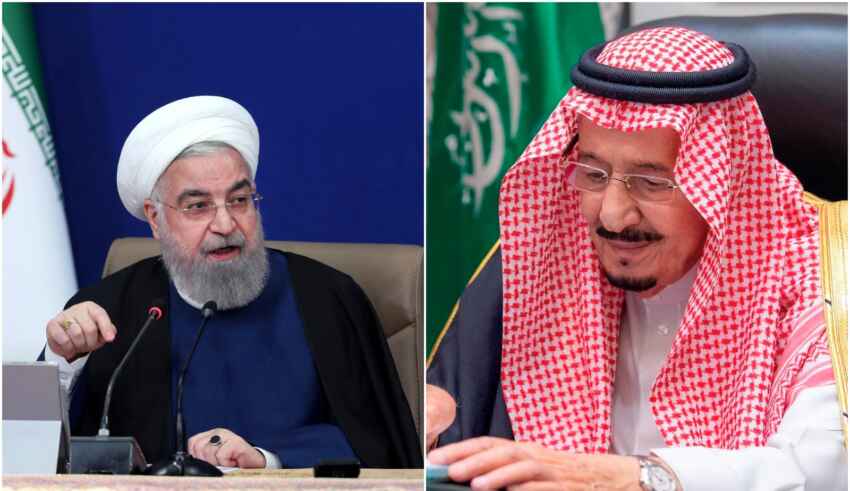
The Saudis and Iranian Government has historically not seen eye to eye in matters spanning from religious school of thought, politics and policies, international relations (especially with the West Bloc), oily export policy and most significantly, power over the Middle East. With no diplomatic relations after the 2016 attacks on the Saudi Diplomatic Mission in Tehran, tensions between the countries had escalated to an all-time high. The United States has tried to pacify the relationship through the Abraham Accords and the recent visit to the Middle Eastern, but little progress has been achieved. However, it seems a common ground that the two nations have recently is their willingness to compromise international peace for self-interest and violation of human rights.
While Iran is burning, the aftermath of protests on the street by women and young adults against the oppressive system, reports of Iran sourcing weapons to Russia have surfaced, though denied by both Kremlin and the Iranian Government alike. The OPEC+ decision regarding cuts in oil production is said to benefit Russia. Unfortunately, this comes at a time when the Western Bloc is desperately trying to strike at Russia’s oil revenue which would eventually affect Russia’s ability to continue the war. However, recently the Saudis have warned the United States of an ‘imminent attack’ against the country by Iranians, a claim the country has vehemently denied.
While precaution is always advised, the White House must carefully analyse the situation at hand before acting in haste. With a divided Congress, conversations of the U.S pulling out military resources from Saudi Arabia have made their rounds recently. Biden even commented on reevaluating the U.S- Saudi diplomatic relationship after the OPEC+ decision. The threat of an imminent attack would definitely pull attention away from the crude oil issue and may, in fact, strengthen the military support extended by the United States in the Middle East. While only time will tell if the ‘imminent threat’ is real or fabricated as part of Saudi’s political gameplay, the Biden Administration must strategically plan a course of action to diffuse the threat. The U.S must
carefully reevaluate their relationship with Saudi Arabia and must not get stuck in between the regional conflict in the Middle East, especially since the administration is struggling with internal issues within the U.S. However, the most diplomatic route would be to ‘play it cool’ because taking revenge on Saudi may not go down well for the United States. This might be the reason behind Biden’s silence on the OPEC issues after the blunt statements about making the Saudis pay for their actions. Therefore, the strategy must be to garner a strong relationship with Saudi and ensure it doesn’t strain based on external factors and threats. The friendly relationship between Saudi Arabia and the United States is a result of many years of diplomacy. While it is safe to be cautious about the Nation’s personal agenda, the best-case scenario for the United States would be to continue with caution and ensure Saudi loyalty does not shift to the Russian side.
As for Iran, the key for the United States would be verifying Iran’s involvement in supplying Russia with drones and reevaluating the Joint Comprehensive Plan of Action formulated with the P5+1. Iran could greatly be benefitted from wedging a gap between the United States and Saudi Arabia. Any lapse in diplomatic relations would see the United States pulling out its military sources, giving Iran an opportunity put a strong footprint in the Middle East. But with any thought, the Government would not risk attacking the U.S, especially since it is already witnessing a backlash from the International community. An attack against another nation-state seems improbable at this point, especially since Raisi Government’s interest in repairing diplomatic relationships with Iran’s neighbours.
Iran and Saudi Arabia claim to be different but seem to share an interest in prioritizing their self-interest at any cost. Countries engaging in a diplomatic relationship with these countries must ensure that they are not pulled into the internal conflict between the Arab Nations. In 2022, allyship and loyalty mean very little, with long-standing diplomatic friendships falling over economic priorities. These lessons for the United States can be a precedent for other nation-states wanting to form ties with others.
By The European Institute for International Law and International Relations.















